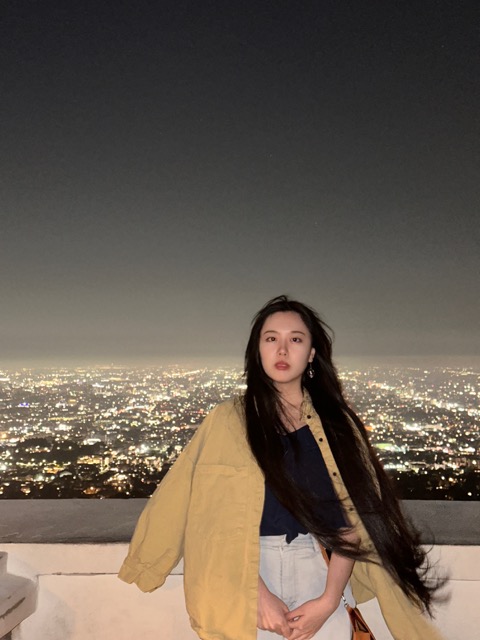
We are on the cusp on yet another new direction in entertainment. It was only a few years ago that streaming services offered a new means of consuming films and series for what seemed like a peripheral viewership but now this method has become the leader. The increasing popularity of short productions with numerous episodes which caters to viewers on-the-go who prefer to watch on their own timetable has led to companies like ReelShort acquiring a global audience, including many American viewers. ReelShort attracted major attention in November of last year when it topped the iOS chart and achieved well over 300,000 installs in a single day. Over eleven-million downloads confirms that there is a sizeable audience for this type of format. ReelShort offers a highly appealing strategy of programming that doesn’t take itself too seriously and rebukes any content deemed too violent or sexual. Editor Hanyu Gao is an indispensable member of the ReelShort team, delivering captivating content with some of the platforms most popular productions including Snatched a Billionaire and Married at First Sight. While she’s proven herself in more traditional long-form productions like the thriller film Canary which earned her the Gold Award for Best Editing (Independent Shorts Awards), Hanyu has eagerly delved into the new frontier that is mobile episodic filmmaking.

Ms. Gao readily admits that editing for ReelShort requires rethinking one’s approach. The average length of an episode in a ReelShort series is 60-80 seconds with 60-90 episodes/per production. For example, Snatched a Billionaire has 63 episodes, the shortest of which is only forty-seconds long and the longest episode spanning a still brief two minutes. Married at First Sight is comprised of eighty-nine one-minute long episodes. Hanyu is the editor for both of these productions which regularly sits at the top of ReelShort’s “Daily Best Selling” list. Delivering some type of story arc and emotional impact in this curt amount of time necessitates a more concentrated potency. The normal time allowed to develop characters and storylines in a storyline simply isn’t available in a ReelShort production. The abundant use of music, sound effects, exaggerated performances, zoom-ins during post-production, as well as the numerous reaction shots support the story and manifests a tone that quickly becomes enchanting. This heightened and emphatic approach serves the short episodic template exceedingly well. Hanyu explains, “We eschew subtle emotional expressions. Instead, characters’ emotions need to be direct and exaggerated and plot construction needs to be simple and easy to understand. To achieve the utmost in direct and exaggerated emotions, we incorporate a significant number of reaction shots. During the editing process, not only do we need to show the main character’s expressions and reactions, we also incorporate numerous reaction shots of the surrounding characters to enhances the scene’s dramatic intensity and engages the audience emotionally.” She describes, “For example, in Episode 14 of “Snatch a Billionaire”, when the bankrupt protagonist works at a bar and encounters her former friends, they mock and harass her. Fueled by anger, she ends up punching one of the instigators, escalating the conflict. Just as things goes out of control, the male lead intervenes to save her. In this episode, each plot point is supported by numerous reaction shots. When the protagonist is harassed, we see the serious and sympathetic reactions of the bar owner and other patrons. When she punches someone, we witness the excitement and surprise of the onlookers. As the antagonist boasts and abuses his power over the protagonist, we see the bar owner’s disdain for his absurd words. And when the male lead appears, we observe the cheers and excitement of the crowd. These abundant reactions serve as substitutes or guides to the audience’s emotions, these reaction shots essentially serve as the audience within the storyline, helping them feel anger or excitement as events unfold. They also maximize the arousal of the audience’s emotions, thereby providing emotional value.”
Modern life is fast paced. It seems intuitive that entertainment would correlate to this tempo. Rather than the abandonment of the genres which audiences have embraced for centuries, they will simply evolve. As someone who has experienced success in both the traditional form and the modern form that is ReelShort, Hanyu Gao sees both as a means of doing what she is passionate about, storytelling. A graduate of Chapman University Dodge College who has ventured to work in present day Hollywood, Hanyu admits to having watched nine-hundred episodes of shows on streaming services in a single year. One can embrace history and the future without conflict. Her editing skills may be applied differently when it comes to various projects but the emanate from the same source. She professes, “In terms of editing techniques, the skills are essentially universal. It’s about adapting techniques to different types of creative work. Just as editing a horror film requires a different approach from editing a comedy, there’s no reason why an editor skilled in comedy couldn’t excel at editing horror. Similarly, editing ReelShort series and editing traditional television dramas require different mindsets but there’s no inherent barrier preventing editors from crossing over between the two.”
Writer : Basil Thomson